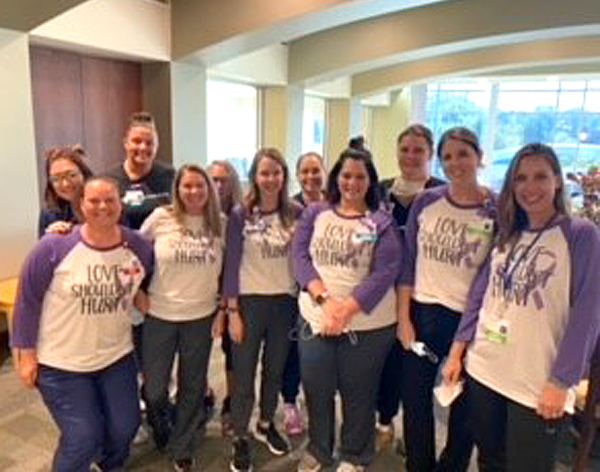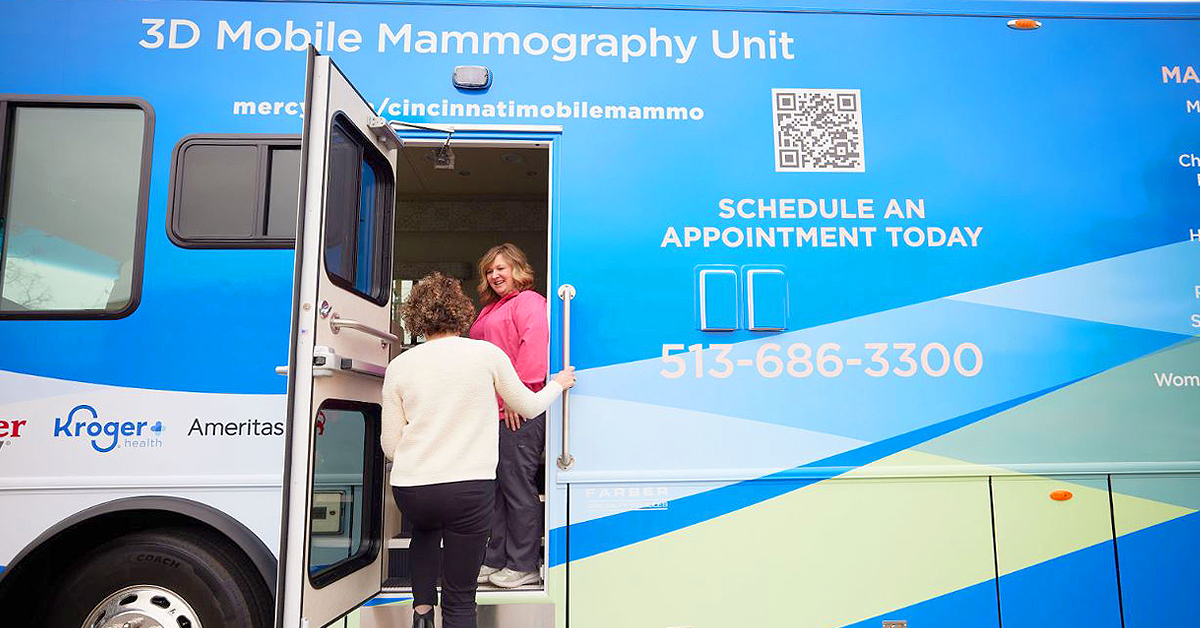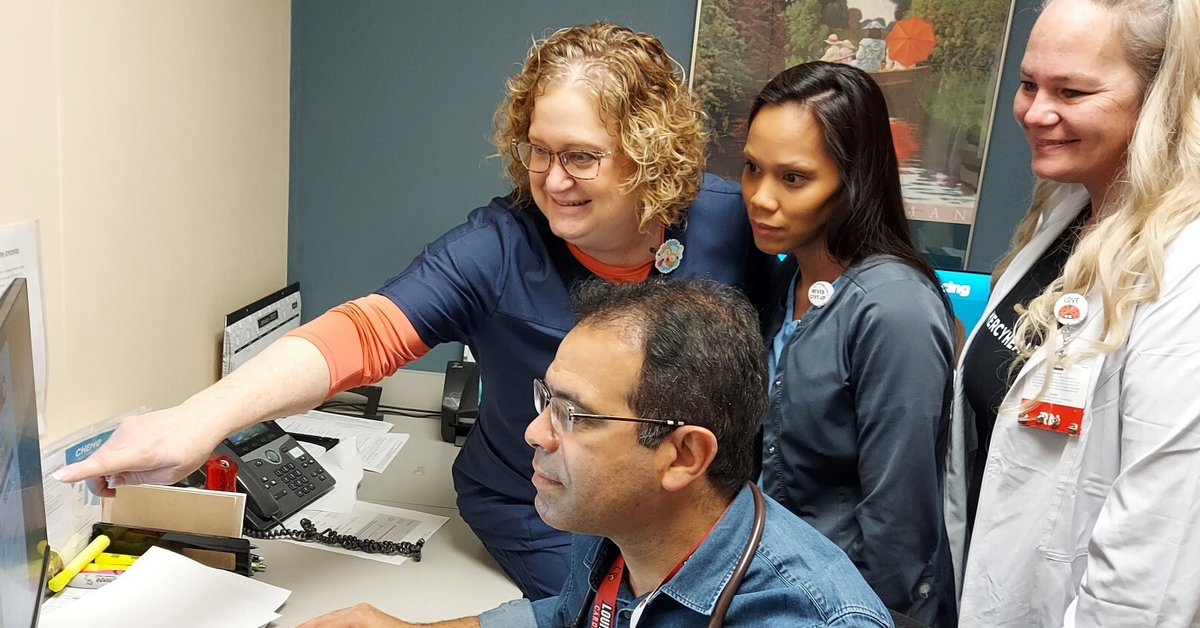Mercy Health – Lourdes Hospital acknowledged Domestic Violence Awareness Month by shining purple lights on the Marshall Nemer Medical Office building from Oct. 10 through 16.
Additionally, the Mercy Health – Paducah Obstetrics and Gynecology team wore domestic violence awareness T-shirts and bracelets to mark the observance.

“I hope the purple lights shining bright on the Marshall Nemer Medical Office Building remind all our coworkers and peers of the importance of asking the tough questions not just in October, but year-round, that can lead a patient to seeking help,” Sherri Dicicco, a nurse practitioner with Paducah Obstetrics and Gynecology, shares.
She adds, “asking those questions, no matter how awkward it may feel, can create a difference and open a line of communication between you and someone who needs help. For example, as a health care professional in the field of women’s health, one of the indicators that I need to ask the tough questions is when a significant other answers all the questions and doesn’t let the patient speak. Also, when a significant other shows resistance to leaving the room, even during a female physical exam. Another sign is unexplained or wrongly explained bruises or signs of vaginal trauma.”
Awareness of domestic violence and intimate partner violence is more important than ever, given the increases in both seen during the COVID-19 pandemic, when many people stayed at home.
According to the National Coalition Against Domestic Violence:
- One in four women and one in seven men have been victims of severe physical violence in their lifetime.
- On average, nearly 20 people per minute are physically abused by an intimate partner in the United States, which equates to more than 10 million women and men in one year.
- There have been 477 gun-related domestic violence fatalities so far this year.
- In Kentucky specifically, 45.3 percent of women and 35.5 percent of Kentucky men report experiencing intimate partner physical violence, intimate partner rape and/or rape in their lifetimes.
- Kentucky has the 11th-highest female homicide rate in the United States.
Knowing potential signs of domestic and intimate partner violence can be the first step at helping victims.
Some signs to look for in a friend or loved one include:
- Being withdrawn
- Not able to do activities they could do before
- No control of finances, receives an “allowance” from significant other or has to ask significant other for money
- Needing to ask permission of a spouse or partner before talking with or seeing friends and family
- Has a newly combined social media account with significant other
- Has new physical symptoms that are suddenly and more continuously prompting visits to a health care provider
- Isolation
“It’s important for the community and health care providers to recognize the cues that can indicate domestic and intimate partner violence. By doing so, they can help patients, friends and family connect with available resources,” Sherri says.
Learn about the women’s health services and other health care services we offer at Mercy Health.






